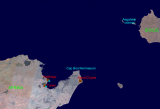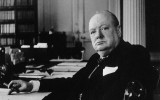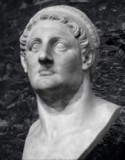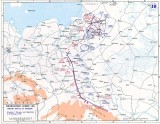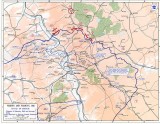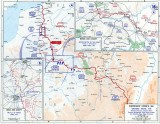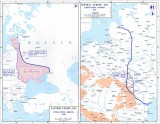List of author's articles
11.11.2011 - Olomouc - Memorial act at the Černovír military cemetery and international conference on war graves
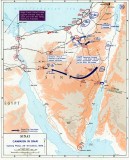
1956 Sinai War
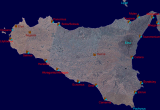
1st Punic War I
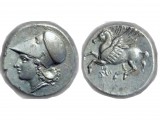
Agathocles
Agathocles was a Greek tyrant of Syracuse and self-styled king of Sicily.

Anthony Robert Eden

Appius Claudius Caudex
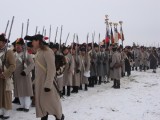
Austerlitz 2005
Battle of Lissa July 20, 1866

Carthaginian commander Hannibal Gisco

Chamberlain to the nation after the annexation of Austria March 24, 1938

Chamberlain to the nation on September 3, 1939

Chamberlein's radio speech on the declaration of war on Germany on September 3, 1939
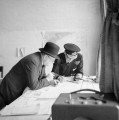
Churchill address to the nation after the evacuation of Dunquerke 4.6.1940

Crucifixion

Development of the Roman Republican Establishment (1)

Development of the Roman Republican Establishment (2)

Development of the Roman Republican Establishment (3)

Development of the Roman Republican Establishment (4)

Development of the Roman Republican Establishment (5)

Development of the Roman Republican Establishment (6)

Development of the Roman Republican Establishment (7)

Falklands 1982
Ten-week undeclared war between Argentina and the United Kingdom in 1982 over two British dependent territories in the South Atlantic: the Falkland Islands and its territorial dependency, South Georgia and the South Sandwich Islands.
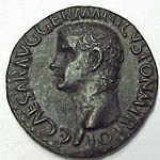
Gaius Iulius Caesar Germanicus Caligula

Generalissimo Chiang Kai-Shek

German-Soviet non-aggression pact 23.8.1939
The Government of the German Reich and The Government of the Union of Soviet Socialist Republics desirous of strengthening the cause of peace between Germany and the U.S.S.R., and proceeding from the fundamental provisions of the Neutrality Agreement concluded in April, 1926 between Germany and the U.S.S.R., have reached the following Agreement ...

Guidelines for the Green Plan - Conquest of Czechoslovakia May 30, 1938

Hamilkar Barak

Hanno the Elder
We do not know much about Hanno the Elder, as well as about a large part of the Carthaginian commanders who participated in the First Punic War. He was the son of Hannibal Gisco and he enters the scene of the First Punic War at its beginning (summer 264 BC). Either he was in Sicily when the war began and took command of the army sent from Africa at Acregauntum (a Carthaginian allied city) after the Romans had expelled the Carthaginian garrison from Messana and taken the city themselves, or he arrived in Sicily with that army. In any case, he made an alliance with the traditional Carthaginian enemy (and Roman ally) Hieron of Syracuse and marched with the Syracusans to Messana to retake it. When he refused the Roman ultimatum, the Roman consul Appius Claudius Caudex declared war on Carthage - thus officially beginning the First Punic War.
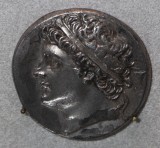
Hiero II of Syracuse
Hiero II was the Greek tyrant of Syracuse, Magna Graecia, from 275 to 215 BC, and the illegitimate son of a Syracusan noble, Hierocles, who claimed descent from Gelon. He was a former general of Pyrrhus of Epirus and an important figure of the First Punic War. He figures in the story of famed thinker Archimedes shouting "Eureka".

Hitler in Obersalzberg to sign the German-Soviet Pact on August 24, 1939

Hitler to the nation on September 3, 1939

Hitler's decree to hand over command to the Wehrmacht

Jugurtha
Jugurtha was a king of Numidia. When the Numidian king Micipsa, who had adopted Jugurtha, died in 118 BC, Jugurtha and his two adoptive brothers, Hiempsal and Adherbal, succeeded him. Jugurtha arranged to have Hiempsal killed and, after a civil war, defeated and killed Adherbal in 112 BC.

Karel Bednařík

Ladislav Rašín
I swore allegiance to the Czechoslovak Republic and I will remain loyal to it until my death.
Lubomír Jasínek
On October 24, 1942, he was dropped with Závorka and Srazil near Kopidln in the Jičín region. He became involved in the group's activities and managed to successfully establish contact with London. Due to the activities of the confederates Čurda and Nachtmann, the Gestapo managed to track Jasinek and Závorka down in Rovensko pod Troskami. Here, on 15 January 1943, the Gestapo surrounded them at the swimming pool in the house of the lifeguard Lukeš.

Marcus Atilius Regulus

Mašín brothers - the facts

Memorandum of the German Ambassador in Madrid regarding the entry of Spain into the war on August 8, 1940
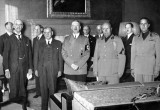
Munich Agreement

Mława
Recently, the seventieth anniversary of the September 1938 events leading to the abandonment of the Czechoslovak border and its extradition to Hitler's Germany without a fight passed. On the occasion of the perpetual discussion on " we should have defended ourselves ", which the anniversary unleashed again, I decided to write this brief article on the Polish defense of the fortified area near Mława from September 1939, which offers many parallels with the situation of Czechoslovakia a year earlier and its military. options.

Nazi takeover of Germany (1930-1934)
On 30 January 1933, Adolf Hitler was appointed Chancellor of the German Reich, and this date is therefore considered the moment when the Nazis took power in Germany. However, the path from republic to dictatorship is not so simple and the process of taking power took place over a longer period.
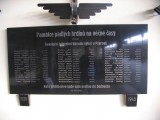
Přerov Uprising on May 1, 1945

priest Ambrož Hradecký
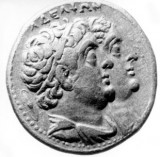
Ptolemaios II. Philadelphos

Publius Claudius Pulcher

Remembrance of Petr Vintar Zlesák

Rewards and honors in the Roman army

Roman gladiators

The allied corps in the Roman army
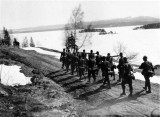
The directive for the exercise plan on river Weser - conquest of Norway and Denmark 1.3.1940
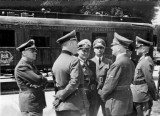
The Franco-German treaty of truce 22.6.1940
The surrender of France in Compiegne

The Roman calendar as the basis of today's calendar
In this article I will discuss the Roman calendar in relation to the calendar of today. The aim is not to give an exhaustive description of the Roman calendar, but to try to explain the origins of some things that we take so much for granted that we hardly think about them - for example, why the year begins on the first of January, why the months are called what they are called in many of the world's languages, why February has 28 days, why July and August have 31 days, even though they are right after each other in the calendar, why a leap day is added to February once every four years...

The Russian countryside or why Stalin collectivized agriculture

The terrorist attack on the USA 9/11/2001
On 11.9. In 2001, an event took place that affected almost the entire world and, although we do not realize it, it spoke to the lives of many of us. There were suicide airstrikes on US targets in live television. The aim of this article is not only to recall the course of events, which most of us remember in outline, but mainly to show not so notorious connections.
Tomáš Garrigue Masaryk

World War I - Part 1: Formation of Alliances (1870-1907)

World War I - Part 2: The Road to War (1907 - July 1914)

World War I - Part 3: Beginning of the war, war plans (July - August 1914)
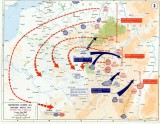
World War I - Part 4: Great Maneuvers (August - December 1914)

World War I - Part 9
... In 1929 comes the world economic crisis, which will only exacerbate all problems, and the world is heading for another world war ...
Join us
We believe that there are people with different interests and experiences who could contribute their knowledge and ideas. If you love military history and have experience in historical research, writing articles, editing text, moderating, creating images, graphics or videos, or simply have a desire to contribute to our unique system, you can join us and help us create content that will be interesting and beneficial to other readers.
Find out more